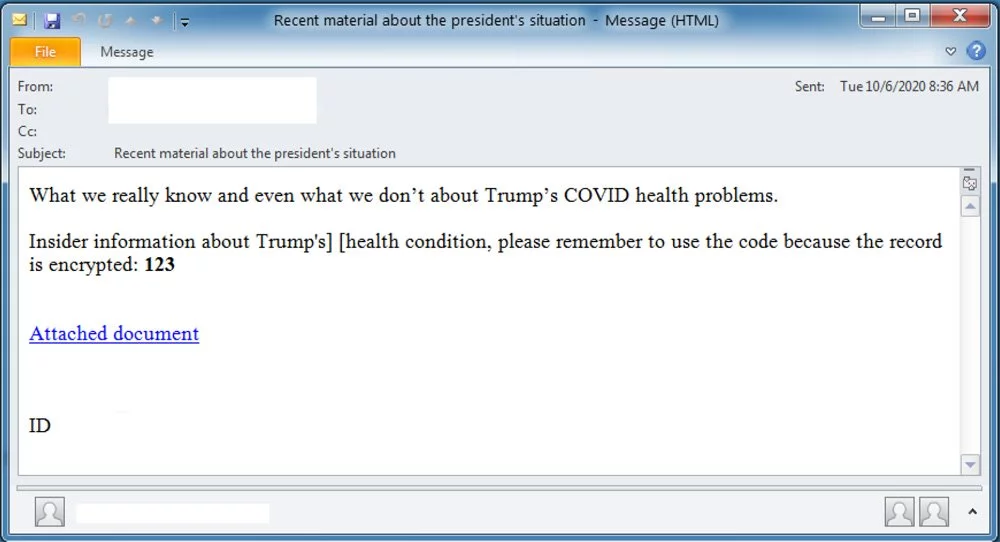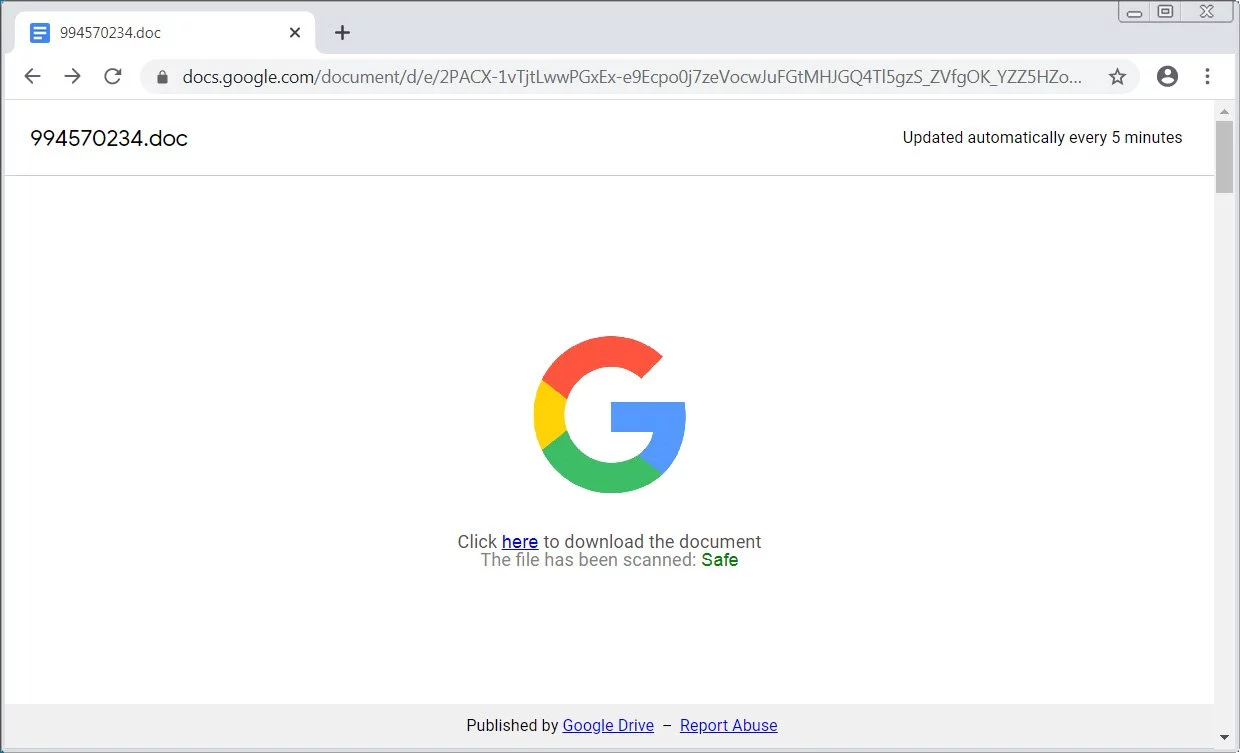KEEP IN TOUCH
Subscribe to our mailing list to get free tips on Data Protection and Cybersecurity updates weekly!







A phishing campaign pushing a network-compromising backdoor pretends to have the inside scoop on President Trump’s health after being infected with COVID-19.
With the United States 2020 Presidential elections being hyper-partisan, people from different sides of the aisle have become obsessed with Trump’s health for various reasons.
To capitalize on this, the threat actors behind the BazarLoader trojan have started a new phishing campaign that pretends to have insider information on Trump’s condition.
The new phishing campaign spotted by researchers at cybersecurity firm ProofPoint is using a variety of different email subjects, including:
Recent materials pertaining to the president’s illness
Newest information about the president’s condition
Newest info pertaining to President’s illnessThe spam email themselves tease that they have new insider information regarding Trump’s health, but require you to download a document using an embedded link.
Also Read: Trusted Data Sharing Framework IMDA Announced In Singapore

When a recipient clicks on the link they will be brought to a Google Doc stating that Google has scanned the file and it is safe. It then prompts the visitor to download the document.
When clicking on the download link, instead of downloading a Word doc, a BazarLoader executable will be downloaded instead.

BazarLoader is a backdoor trojan believed to be created by the notorious TrickBot gang.
When installed, BazarLoader will allow the threat actors to remotely access the victim’s computer, and use it to compromise the rest of the network.
These attacks ultimately lead to the deployment of the Ryuk Ransomware on a victim’s network, which turns the breach of a single computer into a corporate wide attack.
BazarLoader is not the only malware taking advantage of the 2020 election. Last week, ProofPoint also found emails pretending to be from the Democratic National Convention (DNC) that infected recipients with the Emotet trojan.
Also Read: Data Protection Authority GDPR: Everything You Need To Know

Established in 2018, Privacy Ninja is a Singapore-based IT security company specialising in data protection and cybersecurity solutions for businesses. We offer services like vulnerability assessments, penetration testing, and outsourced Data Protection Officer support, helping organisations comply with regulations and safeguard their data.
Singapore
7 Temasek Boulevard,
#12-07, Suntec Tower One,
Singapore 038987
Latest resources sent to your inbox weekly
© 2025 Privacy Ninja. All rights reserved
Subscribe to our mailing list to get free tips on Data Protection and Cybersecurity updates weekly!

Subscribe to our mailing list to get free tips on Data Protection and Cybersecurity updates weekly!
